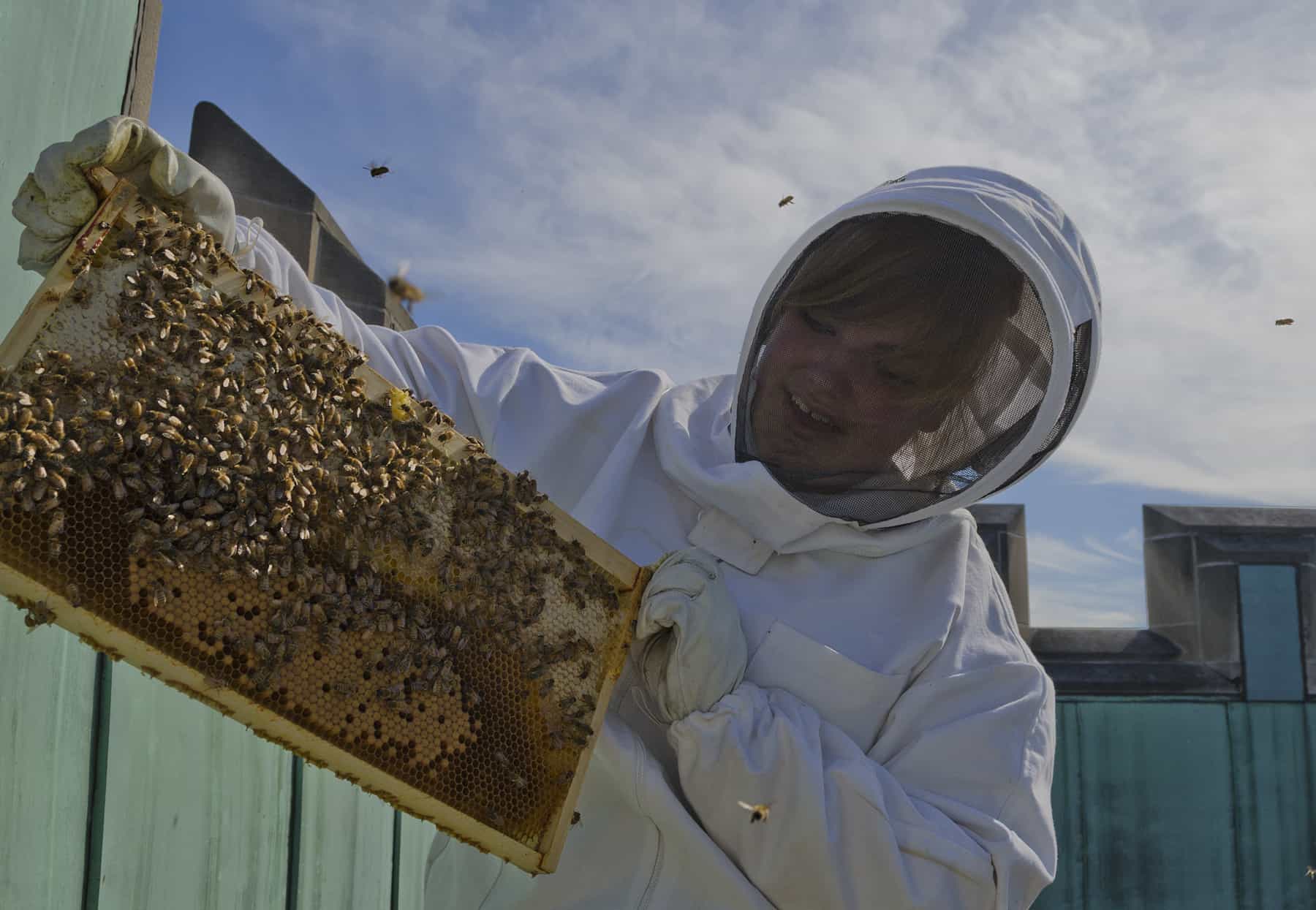Theri Reichlin has a unique way to relax. She’ll climb on to the roof of Trinity College and listen to the bees. There are five hives at U of T — two each on the roofs of Trinity College and the Faculty Club, and one on the Earth Sciences Centre. “Somehow you get this relationship with the girls, and you love coming to visit them, and even if you just sit next to the hive and listen to them buzz around — it’s such a harmonious feeling,” says Reichlin.
Reichlin is the secretary of U of T B.E.E.S (Beekeeping Education Enthusiast Society), a U of T club dedicated to educating its members about the practises of natural beekeeping and the production of local honey. “Bees have a flight range of about three kilometres, and [our] bees are probably pollinating the food grown on campus,” says Reichlin. “Obviously, we all know that the majority of food is pollinated by bees, so there’s your benefit.” According to Reichlin, the people who join B.E.E.S are generally interested in urban agriculture and the environment. However, some members — including the club’s president, Alissa Saieva — joined the club to overcome their fear of the insects.
U of T B.E.E.S allows students to bypass the normal challenges involved in establishing an urban hive. The practise is often expensive — the cost of starting a colony can be around $500. It can also be difficult to find neighbours who understand the appeal.
Bees have a bad reputation; they are often mistaken for more aggressive insects like yellowjackets. It’s a hard belief to overcome, and it can scuttle projects,. A B.E.E.S plan to put hives on St Michael’s campus had to be cancelled. “U of T-wise, it’s been hard to get access to roofs because of the same reasons — the facilities managers of the buildings don’t completely understand what the deal is and don’t have an open mind about this,” Reichlin explains. It is also illegal to have hives 30 metres from a property line.
Bees are hardy creatures — during Canadian winters, the bee warmth system may be more reliable than our electrical counterpart. “Bees have an amazing system in keeping warm (or cool, during summer months). They cuddle up together and just eat the honey supplies they made during the winter, and they usually manage to keep the temperature pretty constant,” says Reichlin. “Bees have a good adaptability to the cold. If they survive in other environments — like in Finland, where it gets crazy cold at -40 all the time — why wouldn’t they make it here? The only issue would be moisture and food supplies.” In the spring, watch for the bees’ re-emergence around campus — they’ll be just as busy as always.


